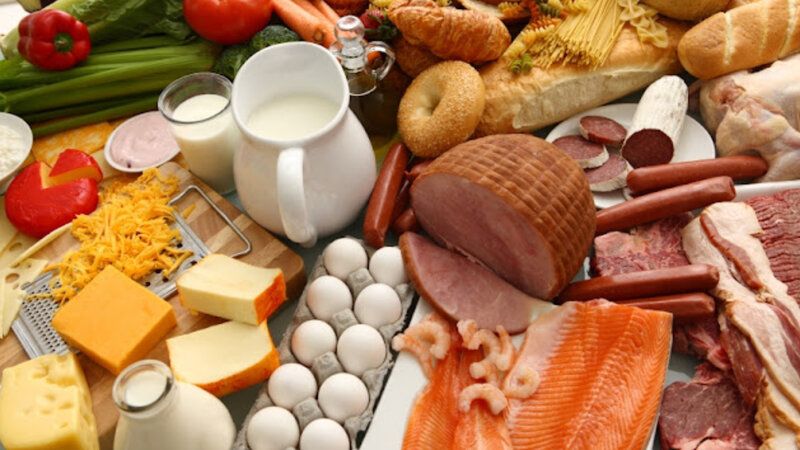Ayurvedic Medicine Best For High Cholesterol
Hypercholesterolemia is a condition characterized by an increase in the total cholesterol levels in the bloodstream, leading to elevated levels of low-density lipoprotein (LDL) compared to high-density lipoprotein (HDL).
This imbalance can contribute to the development of atherosclerosis, a gradual and silent process that occurs in the arteries. Over time, atherosclerosis can lead to severe conditions such as myocardial infarction (heart attack) and stroke.
In addition to its impact on the cardiovascular system, hypercholesterolemia can also affect the limbs. It may cause ulcers, pain, and even gangrene in certain cases.
There are several common reasons and risk factors associated with this condition. These include a sedentary lifestyle with a lack of exercise, a diet high in saturated fat and cholesterol, obesity, excessive alcohol consumption, smoking, kidney disorders, liver disorders, and diabetes.
Hypercholesterolemia can also have a genetic component, with a family history of the disorder increasing the risk.
Herbs That Reduce Cholesterol Quickly
Ayurveda, a traditional system of medicine originating in India, offers various herbs that are believed to help manage high cholesterol levels.
It’s important to note that while these herbs are commonly used in Ayurveda, scientific evidence regarding their effectiveness in treating hypercholesterolemia is limited.
It’s always advisable to consult a healthcare professional before starting any new treatment or herbal supplement. Here are a few Ayurvedic herbs that are traditionally believed to be beneficial for high cholesterol:
1. Guggul (Commiphora mukul)
Guggul is a resin obtained from the Mukul myrrh tree and is widely used in Ayurveda to support healthy cholesterol levels. It is believed to help reduce LDL cholesterol and triglyceride levels while promoting HDL cholesterol (the “good” cholesterol). Guggul can be taken in capsule or tablet form.
2. Arjuna (Terminalia arjuna)
Arjuna is a tree bark traditionally used in Ayurveda for heart health. It is believed to have lipid-lowering properties and may help reduce LDL cholesterol and triglyceride levels. Arjuna is available in capsule, tablet, or powdered form.
3. Turmeric (Curcuma longa)
Turmeric is a commonly used spice in Ayurvedic cooking and is known for its anti-inflammatory properties. Curcumin, the active compound in turmeric, has been studied for its potential cholesterol-lowering effects. It may help reduce LDL cholesterol oxidation and inflammation. Turmeric can be added to dishes or consumed as a supplement.
4. Ashwagandha (Withania somnifera)
Ashwagandha is an adaptogenic herb that is traditionally used to support overall health and vitality. Some studies suggest that it may help lower total cholesterol and increase HDL cholesterol levels. Ashwagandha is available in capsule, powder, or liquid extract form.
5. Brahmi (Bacopa monnieri)
Brahmi is an herb known for its cognitive-enhancing properties. It may also have a positive impact on cholesterol levels. Some studies suggest that Brahmi may help reduce total cholesterol and LDL cholesterol while increasing HDL cholesterol. Brahmi is typically taken as a powdered herb or in capsule form.
6. Triphala
Triphala is a combination of three fruits: Amla (Emblica officinalis), Haritaki (Terminalia chebula), and Bibhitaki (Terminalia bellirica). It is known for its detoxifying and rejuvenating properties. Triphala may help regulate cholesterol levels by reducing LDL cholesterol and triglycerides while promoting HDL cholesterol. It is usually taken as a powder or in capsule form.
7. Amalaki (Emblica officinalis)
Also known as Indian Gooseberry, Amalaki is a potent antioxidant herb. It is believed to have lipid-lowering effects and can help reduce LDL cholesterol levels. Amalaki is available in various forms, including fresh fruit, powder, juice, or capsule.
Punarnava is a herb with diuretic properties and is often used in Ayurveda for its detoxifying effects. It may help regulate cholesterol levels by reducing LDL cholesterol and triglycerides. Punarnava is commonly available as a powdered herb or in capsule form.
9. Garlic (Allium sativum)
Garlic is widely used in Ayurvedic medicine for its numerous health benefits. It contains compounds like allicin that may help lower cholesterol levels, specifically LDL cholesterol. Garlic can be consumed fresh, cooked in meals, or taken as a supplement.
10. Shankhpushpi (Convolvulus pluricaulis)
Shankhpushpi is an herb known for its cognitive-enhancing and stress-relieving properties. It may also have a positive impact on cholesterol levels. Shankhpushpi is typically taken as a powdered herb or in capsule form.
Remember, Ayurvedic herbs should be used under the guidance of a qualified Ayurvedic practitioner or healthcare professional. They can help determine the appropriate dosage and duration of use based on your individual needs and health condition.
It’s also important to adopt a healthy lifestyle, including a balanced diet, regular exercise, and stress management, to effectively manage high cholesterol levels.
The Best Diet For People With High Cholesterol
If you have high cholesterol, it’s important to adopt a healthy diet that can help manage your condition. Here’s a sample diet plan for high cholesterol:
1. Include heart-healthy fats:
- Consume sources of monounsaturated fats, such as olive oil, avocados, and nuts (almonds, walnuts, pistachios).
- Incorporate sources of polyunsaturated fats, including fatty fish (salmon, trout, mackerel), flaxseeds, chia seeds, and soybean oil.
- Limit saturated fats and avoid trans fats, found in fried foods, fatty meats, full-fat dairy products, and commercially baked goods.
2. Increase dietary fiber:
- Consume plenty of fruits and vegetables, aiming for at least five servings per day.
- Include whole grains like oats, whole wheat, brown rice, and quinoa.
- Legumes, such as lentils, chickpeas, and kidney beans, are excellent sources of fiber.
3. Opt for lean protein sources:
- Choose lean cuts of poultry (skinless), fish, and seafood.
- Legumes and tofu can be great plant-based protein options.
4. Reduce cholesterol-rich foods:
- Limit the intake of high-cholesterol foods such as organ meats, shellfish, and egg yolks.
- If you enjoy eggs, consume them in moderation, focusing on egg whites or using cholesterol-free egg substitutes.
5. Minimize added sugars and refined carbohydrates:
- Limit sugary beverages, desserts, and processed snacks.
- Choose whole grain options over refined grains, such as white bread and white rice.
6. Incorporate heart-healthy herbs and spices:
- Use herbs and spices like turmeric, ginger, garlic, cinnamon, and cayenne pepper, as they may have potential cholesterol-lowering effects.
7. Stay hydrated:
- Drink an adequate amount of water throughout the day to support overall health.
8. Practice portion control:
- Be mindful of portion sizes to maintain a healthy weight and avoid overeating.
9. Limit alcohol consumption:
- If you choose to drink alcohol, do so in moderation. For men, this means up to two drinks per day, and for women, up to one drink per day.
Remember, it’s essential to work with a healthcare professional or a registered dietitian to tailor a diet plan specifically to your needs and preferences. They can provide personalized guidance and help monitor your progress in managing high cholesterol.























